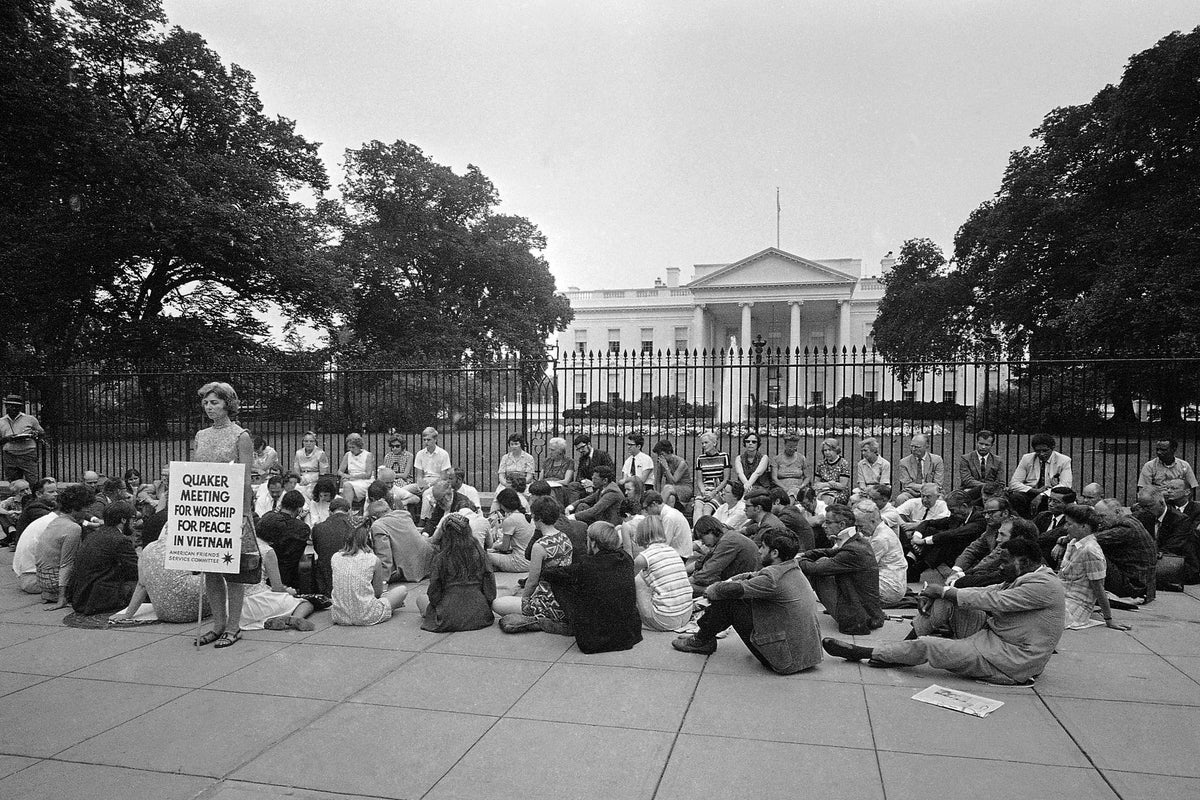Quakers Are Not Just a Pacifist Sect; Their Radical Spirituality Challenges Conventional Beliefs and Sparks Outrage in Today’s Divided World!
The Religious Society of Friends, commonly known as Quakers, has a rich history and a unique set of beliefs that often provoke strong opinions and misunderstandings. At the core, Quakers emphasize simplicity, peace, integrity, community, and equality. These values are woven into the fabric of their lives and their spiritual practices. However, the notion that Quakers “quake” is often a source of confusion and misinterpretation.
The term “Quaker” originally stems from the 17th century, during the time of the movement’s founding in England. George Fox, a key figure in the establishment of Quakerism, sought to reform Christianity by emphasizing a direct and personal relationship with God rather than adherence to established church doctrines. The label “Quaker” was said to have come about when Fox urged his followers to “tremble” at the word of the Lord. The “shaking” or “quaking” referred to in the name, however, is not a central practice of modern Quakers but rather a historical reference reflecting the passionate spiritual experiences of early adherents.
One significant aspect of Quaker belief is their commitment to pacifism. Quakers are well known for their opposition to war and violence, often serving as advocates for peace throughout history. This commitment to nonviolence is deeply rooted in their understanding of the “Inner Light,” a belief that there is a divine presence within every individual. This perspective compels them to promote social justice, equality, and nonviolent conflict resolution. Their active participation in movements for civil rights, anti-slavery efforts, and peace activism has shaped their identity as a faith community that stands against oppression.
Misconceptions about Quakers often arise from their distinctive practices and beliefs. Many people associate Quakerism solely with their silent worship, where congregants gather in quiet contemplation, waiting for the “still, small voice” of God to speak. This form of worship can appear sparse and unstructured to outsiders, leading some to question the depth of their spirituality. However, this silence fosters a profound sense of community and introspection, allowing individuals to reflect deeply on their faith and the world around them.
Additionally, Quakers have a long-standing tradition of consensus decision-making. Unlike many religious organizations that operate through hierarchical structures, Quakers value the input of every member, striving for unity in decision-making processes. This approach can be contentious, especially when dealing with contentious issues. It highlights the tension between individual beliefs and the collective conscience of the community. As society grapples with divisive issues—such as gender equality, racial justice, and environmental stewardship—Quakers find themselves navigating complex discussions within their communities and the broader world.
The history of Quaker involvement in social justice movements demonstrates their commitment to challenging societal norms. From their strong opposition to slavery in the 18th and 19th centuries to their active role in the civil rights movement of the 20th century, Quakers have consistently been at the forefront of advocating for human rights and equality. Their legacy includes prominent figures like John Woolman, who traveled extensively to raise awareness about the evils of slavery, and Lucretia Mott, a leading abolitionist and women’s rights advocate.
In contemporary society, Quakers continue to engage with pressing issues, including climate change, economic inequality, and systemic racism. Many Quaker communities actively participate in initiatives that promote sustainability and social equity. Their view that every individual possesses an “Inner Light” translates into a moral imperative to work towards a just and equitable world. This belief system compels Quakers to engage in activism that aligns with their core values, often positioning them as voices for change in areas where traditional structures may fail to address injustices.
Despite their historical commitment to peace and equality, Quakers face contemporary challenges that reflect societal divisions. Within their own communities, differing interpretations of Quaker beliefs can lead to disagreements, particularly on issues such as LGBTQ+ rights, immigration, and climate justice. The challenge lies in balancing the principles of individual conscience and collective action while fostering an inclusive environment for all members.
External perceptions of Quakers can also be fraught with misconceptions. Some view them as overly idealistic, disconnected from the realities of political engagement. Others stereotype them as being too passive, ignoring the complexities of the world in favor of a simplistic view of pacifism. These misunderstandings can overshadow the active, engaged roles many Quakers play in advocating for social change and working to address systemic injustices.
The intersection of Quaker beliefs with broader societal issues contributes to a dynamic and sometimes contentious dialogue within the movement. As the world grapples with increasing polarization, Quakers continue to emphasize their core tenets of community, equality, and peace. This commitment is reflected in their engagement with various social movements, demonstrating that their faith is not merely a set of beliefs but a call to action.
In many ways, the Quaker experience embodies the tension between tradition and modernity. As they navigate contemporary challenges, Quakers must reconcile their historical values with the realities of an ever-evolving society. This ongoing dialogue within the Quaker community serves as a microcosm of the broader struggles faced by religious and spiritual groups in the 21st century.
As such, the rich tapestry of Quaker beliefs, practices, and historical contributions paints a picture of a community that is both deeply rooted in its traditions and actively engaged in addressing the pressing issues of our time. The exploration of these dynamics invites contemplation about the role of faith in contemporary society and the ways in which spiritual communities can foster understanding and promote justice in a divided world.
Here’s a look at the faith’s beliefs and history — and some common misconceptions about it




